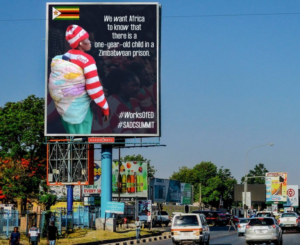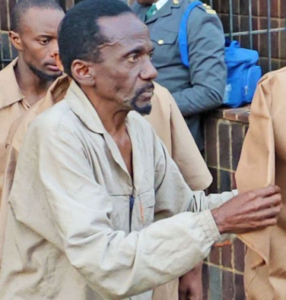HIGH COURT DENIES BAIL TO 73 OPPOSITION ACTIVISTS BEFORE SUMMIT

In a big legal decision, the High Court recently upheld a lower court’s choice to deny bail to 73 out of 74 opposition activists. This is making the political climate more intense before an important regional summit. The activists are from the opposition CCC party and include important figures like former MP and minister Jameson Timba. This ruling comes as the government is taking more actions against possible demonstrations. This creates tension before the Southern African Development Community (SADC) summit, which is set to happen in Harare on August 17.
The only person to get bail was Maxwell Sande, due to his age. This decision shows a bigger story of control and suppression happening in the country. The authorities are getting ready for what they see as threats to public order.
These opposition members were arrested and accused of planning an illegal assembly to hold anti-government protests. This accusation and the denial of bail fit into a larger government effort to stop both real and imagined threats of unrest. This strategy has become stronger after recent protests in Kenya, which seem to have made local authorities more fearful.
Justice Munamato Mutevedzi said there was no mistake by the magistrate’s court in its first decision that the activists should not get bail. According to Justice Mutevedzi, the magistrate used her judgment wisely, so he had no reason to change her decision, except for the case of Sande.
This stance by the court shows that it follows the magistrate’s judgments strictly. It also shows a widespread government plan to prevent disruptions during the upcoming summit. The activists are mostly from the suburbs of Chitungwiza, Epworth, and Hatcliffe, and most of them are under forty years old. This suggests that the government is targeting specific communities and age groups known for political activism.
The impact of this ruling is significant and goes beyond the courtroom. By denying bail to these activists, the government is effectively keeping many of its critics quiet. This ensures a calmer environment as it hosts regional leaders. However, this move also raises serious concerns about the state of democracy and human rights in the country. It affects Zimbabwe’s international image, especially among its SADC partners.
Furthermore, this decision sets a troubling example for how dissent and political opposition are treated in a country already facing accusations of rights violations and autocratic rule. The activists’ connection with the CCC, a key opposition party, highlights the political influences on judicial decisions. It also shows the ruling party’s broader strategy to keep its hold on power.
As the SADC summit gets closer, the international community will be watching Harare closely. They will look not only at the outcomes of the regional talks but also for signs of whether Zimbabwe follows the principles of justice and democracy it claims to support. The way opposition activists are treated will be a test of Zimbabwe’s commitment to these values.
In conclusion, while the High Court’s decision to deny bail to most of these activists might be legally justified under national law, it clearly serves a strategic political purpose. As Zimbabwe prepares for the summit, it shows a desire to control the political landscape and silence dissent. This situation highlights the ongoing tension between maintaining public order and upholding democratic values in the country.




This ruling is a clear example of the government’s strategy to stifle dissent and silence opposition voices. Denying bail to almost all activists sends a message that political suppression is the norm.It’s disheartening to see how the judiciary is being used to further political agendas. By denying bail, the High Court is complicit in undermining democracy and human rights in Zimbabwe.
Targeting specific communities and age groups for political activism is a blatant violation of civil liberties. This ruling shows that the government is more interested in maintaining power than in justice or democracy. This decision is a significant blow to the democratic process. By keeping opposition activists behind bars, the government is creating an environment of fear and repression ahead of the SADC summit
The High Court’s decision might be harsh, but it underscores the importance of maintaining public order ahead of the SADC summit. Ensuring a peaceful environment for regional discussions is crucial.Justice Mutevedzi’s adherence to the magistrate’s original judgment shows a consistent application of the law. This consistency is essential for maintaining legal integrity, even in politically charged cases